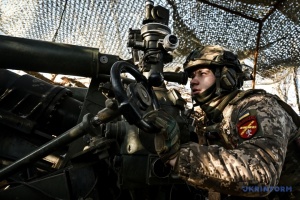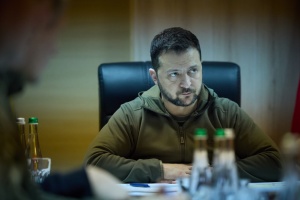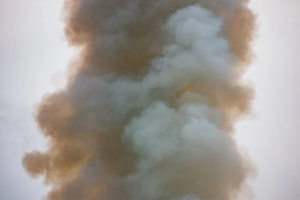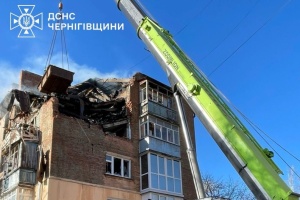
Political crisis in US: how will it affect Ukraine and world?
The world continues to see a wave of escalations and conflicts directly or indirectly related to Russia's large-scale aggression against Ukraine and the resulting collapse of the international security system.
For example, Iran and its proxies (Hamas, Hezbollah, Houthis) are acting increasingly brutally in the Middle East, where the fighting has already spread beyond Israel. The most recent example is the drone strike on a US base in Jordan, which killed three and injured dozens more US troops.
The statements of Kim Jong-un, the leader of the DPRK, who called South Korea "the most hostile state" and threatened to turn it into ashes, are becoming more aggressive. By the way, on January 5, the DPRK fired 200 shells in the direction of South Korea, which landed in the maritime buffer zone north of the limit line, which is actually the maritime border with South Korea. And just recently, North Korea launched several cruise missiles toward the high seas, which landed in the water between the Korean Peninsula and China.
The situation around Taiwan also remains tense. After the victory in the presidential election of the Democratic Progressive Party candidate Lai Tsing-jeou, a supporter of the island's independent development, Chinese President Xi Jinping's plans for rapid progress on the issue of Taiwan's accession to China have been severely shaken. But he is not going to stop. On January 25, through the voice of Defense Ministry spokesperson Wu Qian, official Beijing said that Taiwan is part of China and will never be an independent state, and that attempts by foreign forces to split China will never succeed because the Chinese army is ready to "become an iron wall to protect national sovereignty and territorial integrity."
Meanwhile, the United States of America, instead of providing support to its allies around the world and demonstrating to the already finalized "axis of evil" its readiness for a tough response, and if necessary, for war on several fronts, continues to waver. Since September last year, Democrats and Republicans have been "rubbing foreheads" and plunging the country into a crisis over migration policy.
This raises several important questions:
- What awaits the world if the instability in the United States prolongs or even becomes chronic? Could America lose its global leadership?
- How capable and, most importantly, how ready is Europe to back up the United States if necessary?
- What are the risks and challenges facing Ukraine, which is at war?
LEADERSHIP IS IN QUESTION: THE US MUST FINALLY MOVE FROM A POLICY OF "NON-ESCALATION" TO A TOUGH RESPONSE TO DICTATORS
In a commentary to Ukrinform, diplomat Vadym Triukhan, answering the first question, noted that the democratic world has relied on the United States as the exclusive guarantor of its security for too long. According to him, for decades, the myth of a bipolar, then, after the collapse of the USSR, unipolar, and more recently, a tripolar world - the United States, China, and Russia - has been cultivated. As a result, democratic states were unable to respond quickly and effectively to challenges from authoritarian regimes.
"First of all, the state-like terrorist entities of the "axis of evil", which seems to have already completed its formation. It is based on Russia, Iran and North Korea. China is the ideological inspirer and the rear. And the support group, which also plays the role of advance units or springboards for attack, includes Belarus, Venezuela, Yemen (Houthis), Lebanon (Hezbollah), and Palestine (Hamas)," the expert lists. - "Therefore, Washington's self-removal from fulfilling its responsibilities to ensure the security of its allies and partners can destroy the entire world order that has existed for almost 80 years since the surrender of Nazi Germany, fascist Italy, and militaristic Japan.
At the same time, Mr. Triukhan says, ironically, it is Germany, Italy and Japan that are really capable of taking up the banner of leadership in the issue of repelling the encroachment of autocracies on freedom and democracy, which is slipping out of the hands of American leaders who have played the game of "preventing escalation with the axis of evil."
"It should be noted that until American citizens were killed by racists, American voters could somehow understand the Biden administration's attempts to avoid direct conflict with Putin's Russia. However, after the deaths of three U.S. servicemen in Jordan as a result of an Iranian drone attack, the White House's statements about "preventing escalation with Iran" look like outright weakness and mockery of the victims' relatives. Will the United States be able to get back in the game? It is unlikely in the near future. Unless after the presidential election, and then if a new leader becomes president. After all, those who have already been in power have shown their total inconsistency with the challenges of today," the diplomat believes.
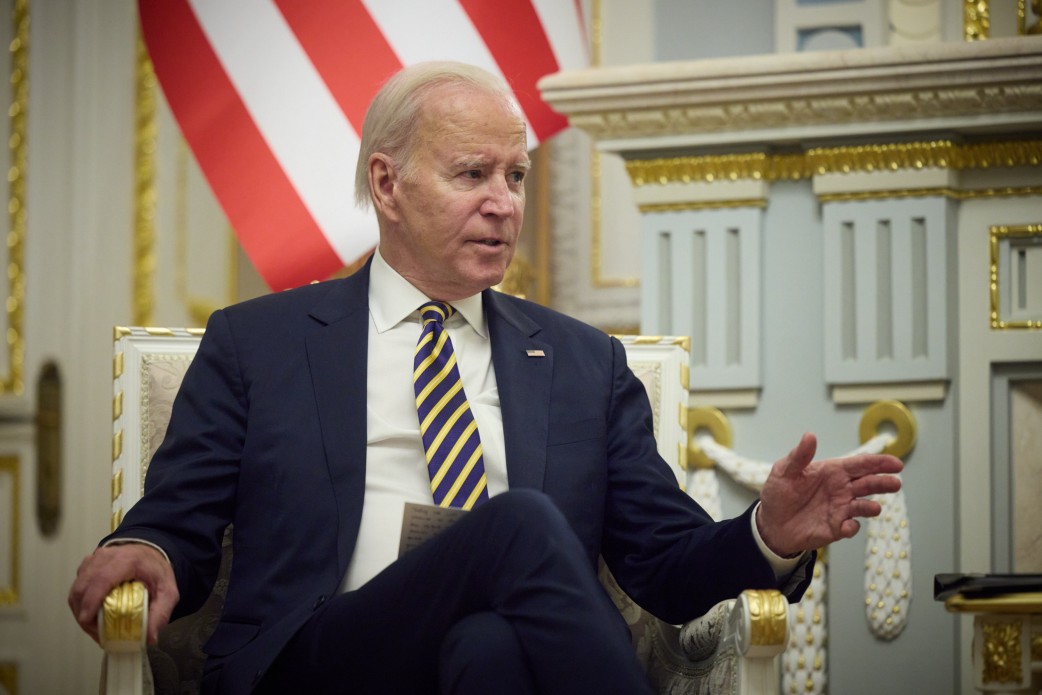
Moreover, he emphasizes, even the very stability of the American state after the attempted storming of the Capitol and Texas' refusal to obey Washington's orders, which was supported to varying degrees by as many as 25 (!) states, is under a big question mark.
"In this situation, it is crucial to find a replacement for the role that the United States has been playing quite successfully in the past. In my opinion, the uni-, bi-, and even tri-polar world has irrevocably sunk into oblivion. The multipolar world is next in line. Just as a mosquito fleet and then a flotilla of drones proved to be more effective than traditional fleets of cruisers, destroyers, frigates, etc., so new coalitions of medium-sized states can become many times more effective than the sole leadership of any one large country," our interlocutor assures.
And the prototypes of such coalitions are already visible today. In Europe, for example, Germany is the founder. The UK, Italy, and France are helping it, and sometimes even ahead of it in some decisions.
There are also prospects for a coalition of Eastern European states that could be formed by Ukraine, Poland, and the Baltic states. Northern Europe has become much more active. In the Pacific region, Japan, South Korea, and Australia are claiming to be the founders of the coalition.
"The State of Israel stands apart, which, according to local analysts, is on the eve of a major war that could be the bloodiest since the creation of the Israeli state. With Israel's main ally tangled up in the three pines of Trump's dense forest, it turns out that this state has no one to rely on but itself," states Vadym Triukhan.
In general, the world is facing unprecedented chaos in international relations, which is bringing a global war with the participation of most continents at full steam ahead.
"In other words, the world is pregnant with a global war and there is no way to avoid it at the moment," the diplomat emphasizes.
As for America specifically, he believes that this country has already lost its global leadership. The first sign of this indisputable fact was the extremely unsuccessful escape from Afghanistan. The second was the inability to do anything about the Maduro regime in Venezuela. The third was allowing Putin's Russia to rescue "private" Assad in Syria. And before that, letting Russia's invasion of Georgia go unchallenged, its illegal annexation of Crimea and the introduction of so-called effective control over part of the Ukrainian Donbas, etc.
"Putin's Russia's large-scale invasion of Ukraine on February 22, 2022, was in fact the last nail in the coffin of the US leadership. Between March 2022 and October 2023, Washington somehow tried to regain its lost ground by forming a coalition in support of Ukraine called the Ramstein Coalition and providing about half of the military and other assistance to our country. However, even during this period, our American friends restrained themselves considerably, not daring to give Ukraine the number and range of weapons that would allow for a successful counteroffensive," says Mr. Triukhan.
In fact, all is not lost, but it is a futile exercise to expect that those politicians who are still afraid of Russia's nuclear weapons will suddenly become bolder.
"Only radical personnel changes in Washington can hypothetically change something. However, the process of returning leadership will not be simple," the expert emphasized.
In his turn, international expert Oleksandr Yusupov believes that the instability in the United States can be called chronic and its consequences are well known.
"Washington has been pursuing a clumsy foreign policy with disastrous results for at least 10 years - remember the withdrawal and return of US troops to Iraq and the annexation of Crimea under Obama. Or how Trump flirted with all the dictators and put pressure on Kyiv for dirt on Biden. "The current government left Afghanistan in complete chaos and almost lost Ukraine in February 2022," recalls Mr. Yusupov. "At the same time, almost everything imaginable happened inside the country: riots across the country during BLM protests, the seizure of the Congress building, one of the candidates refusing to recognize the results of the White House election, the abolition of women's constitutional right to abortion, and so on. In 1958, 72% of Americans said they did not care about the political views of their daughter's future husband. Now the number is only 45%. The population is very divided, and this, as we have seen, has already caused many terrible events inside and outside the country."
And then there may be an escalation of the conflict with Iran and a war with Beijing over Taiwan.
"Can America lose its global leadership? I agree with those who believe that this has already happened to a large extent. China's GDP share in the global economy was 4% in 1990, and now it has risen to 18%. Meanwhile, Beijing has become the main trading partner of most of the world's capitals, and it was through its mediation that Iran and Saudi Arabia restored diplomatic relations last year. Moscow, on the other hand, has created a fairly stable sphere of influence in Africa and the Middle East and still has close political and business ties in Europe," the expert points out.
But this was hardly unavoidable. Although the United States did make many mistakes, it was only a matter of time before new superpowers and powerful regional players emerged and Washington's influence was reduced.
"For example, China has a huge human resource in the form of a billion people, and Russia has large oil and gas reserves, which gave them an excellent foundation for filling the state budget and increasing their competitiveness in geopolitics. That is why the US leadership has always been a temporary phenomenon," emphasized Alexander Yusupov.
Meanwhile, former Foreign Minister of Ukraine Volodymyr Ohryzko is more optimistic, in particular, about the internal crisis in the United States: "It seems to me that a compromise on the border will be found in the coming weeks. The crisis in the United States will pass. So we should not despair too much, thinking that this will destabilize the American democratic system. In fact, this system has been tested over the years, it is quite strong and confident."
In his opinion, President Biden, using his willingness to make certain concessions, will seize the initiative and force Republicans to compromise despite Trump's pressure.
"A positive decision on the border, on Ukraine, on Israel and Taiwan will only benefit the US national interests. I think a solution will eventually be found," Mr. Ohryzko predicts.
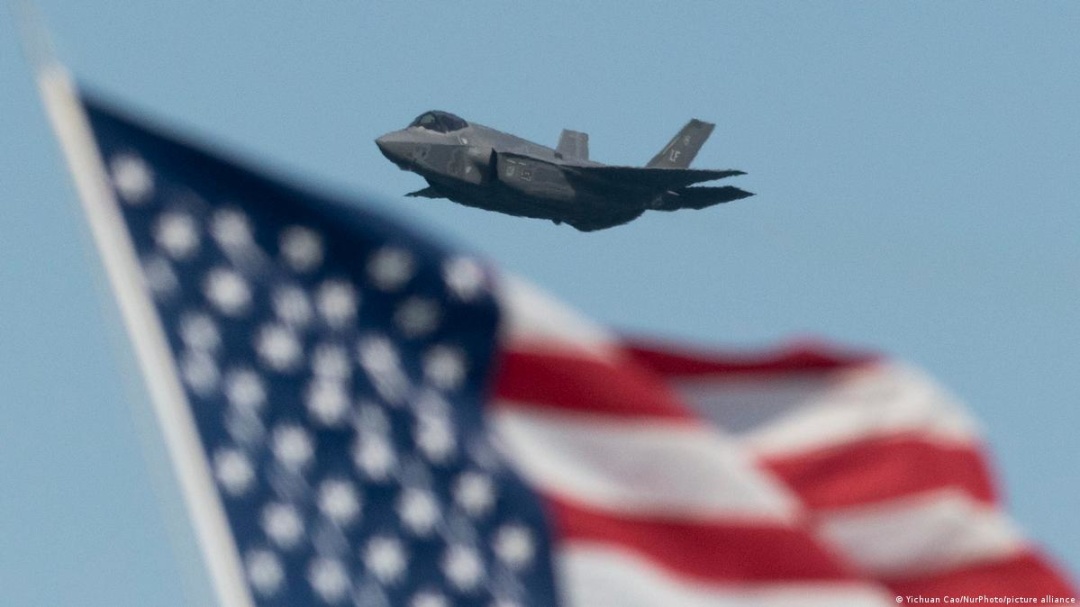
At the same time, he is convinced that the United States will not forget about the world, although he states that the head of the White House still lacks determination.
"Biden makes more threats, but does not take the measures that the leader of the most influential and powerful country in the world should take. I am in full solidarity with the opinion of Republican Senator Lindsey Graham, who said that terrorist cells need to be hit with devastating strikes and destroyed. Unfortunately, so far we have only seen the White House basically trying to call terrorists to common sense. However, talking about common sense with those who do not have it is futile," the diplomat emphasizes.
He hopes that Biden and his advisors will finally realize that they need to act more firmly and sharply, otherwise the role of the United States as a leader in the world will be leveled: "When Washington asks Beijing to influence Tehran, excuse me, what kind of leadership role is America talking about here? Given the threat of Iran's use of nuclear weapons, we need to strike at it, to destroy the targets. The same applies to North Korea."
If these countries are given the opportunity to develop further, they can soon move from theory to practice.
"There are things that need to be responded to with something other than neoliberal calls for universal peace and brotherhood, because otherwise the situation will simply get out of hand. I really hope that the United States will return to its leading role in the world and will finally begin to demonstrate a tough, but the only possible policy in this case," emphasized Volodymyr Ohryzko.
When will this happen? It is hard to say for sure. According to the diplomat, the situation is currently undergoing a complex, viscous process of rethinking. Western countries, led by the United States, have been living in a "warm bath" for the past 30 years, thinking that it would last forever. Now they have finally begun to realize that they were very much mistaken.
"Americans, Germans, and British are talking about this. This is becoming obvious even to those narcissistic and self-indulgent Western politicians who were the creators of the pseudo-peace with Russia. Of course, all this is not easy to rethink, even psychologically. But the process is underway. Yes, slowly and controversially. Perhaps that is why we have half-hearted decisions, indecision in providing Ukraine with the necessary weapons that would force Russia to stop its aggression. Perhaps that is why we see the West still afraid to discuss the topic of post-Putin Russia, its collapse, believing that it will cause some global cataclysms," reflects Mr. Ohryzko. "Of course, this does not apply to everyone, because there are leaders in the West who see beyond the horizon, think in advance about developments and prepare for them, in particular, taking into account their own national interests. Nevertheless, this is a long process, but I do not believe that the Americans will agree to stop playing a leading role in the world. Otherwise, the democratic system in America itself will be called into question."
And China, Russia, and all those countries of the "axis of evil" that are now preparing and uniting to inflict a crushing defeat on the civilized world will immediately take advantage of this situation.
EUROPE WILL LEND A SHOULDER, BUT WILL NOT BE ABLE TO COMPLETELY REPLACE THE US
Oleksandr Yusupov is convinced that Europe is definitely capable of backing up Washington, as the EU and Britain together have even more citizens than the United States, as well as some of the most powerful economies in the world: "And we see that the readiness is there, too, because Europe is now increasing the production of ammunition and filling the vacuum of the lack of assistance to Ukraine from the United States."
However, it is a matter of insurance, but not of Europe's ability to defend itself against Russia.
"It takes time and, of course, political will, which is lacking at the moment. It seems that EU leaders are spending more time pacifying Orban than fighting Putin. However, there is progress, and this increases hope for further positive changes," the international expert comments.
Vadym Triukhan says that most political leaders in Europe have already realized that the free cheese that was the US security umbrella has pushed Europeans into a mousetrap.
"Therefore, Europe is going through a painful process of finding a way out of the situation. Not everything is working out. However, it is encouraging that key leaders are not giving up. Chancellor Scholz, Prime Ministers Sunak, Meloni and Tusk, and President Macron are the five leaders who are gradually taking on the role of collective leadership in helping Ukraine repel Russia's attack and preparing Europe for a possible war against the "axis of evil." Not everything is going smoothly, but the transformation of the position is impressive," the diplomat emphasizes.
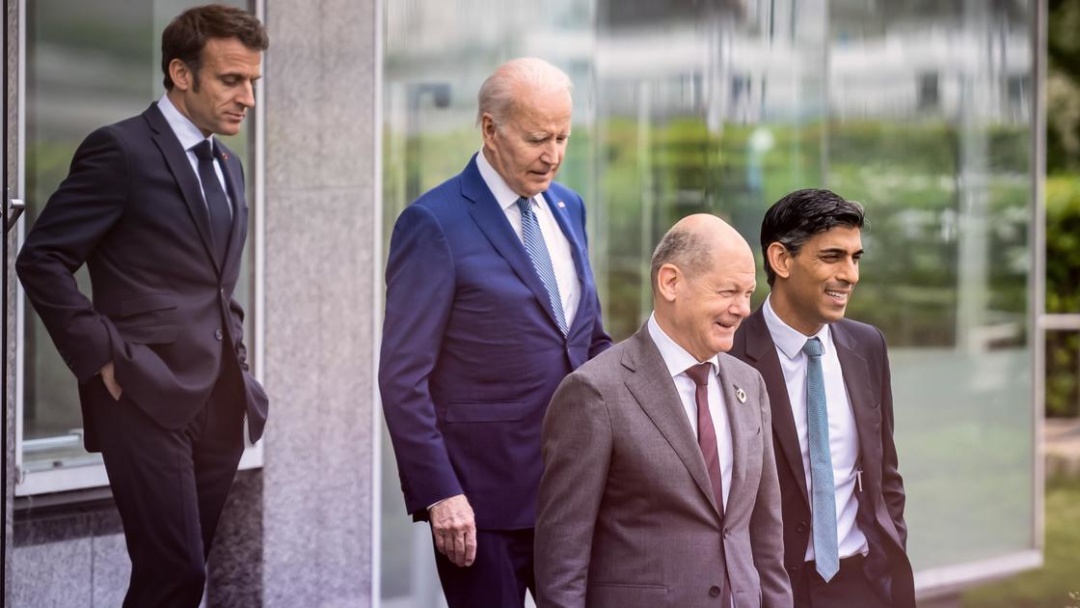
If the Ukrainian army manages to hold the front in the next 12 to 18 months, it will be much easier. After all, building up the capacity of the military-industrial complex in these and other European countries, establishing joint arms production with Ukraine, and modernizing armies takes time.
"Time that we don't have. However, it still plays in our favor. Every month we receive more and more weapons to not only stop the racists on our own territory, but also to launch counterattacks with the prospect of driving this terrorist horde somewhere far away from our borders, optimally beyond their Ural mountains," comments Mr. Triukhan.
And this is Volodymyr Ohryzko: "Of course, Europe will be able to lend a shoulder. We are currently engaged in very intensive negotiations about this, which I think will soon have a practical dimension. The agreement on military-technical cooperation with the UK speaks for itself."
This is a very important and powerful document, the diplomat says, which allows for a real strengthening of cooperation between Ukraine and the UK in the defense and security sector. And if there are 15-20 such agreements with leading European countries, the United States and Canada, it will seriously strengthen our capabilities.
"Even in the absence of a lot of help from America, this will allow us to hold out, but not to win. One way or another, we must count on Congress to make the appropriate decision and that Ukraine will receive appropriate assistance before the end of Biden's term. Europe may be strong, but Europe is not just one voice. It is quite difficult to put everything together. So, I think Europe will not be able to completely replace the United States," Mr. Ohryzko said.
THE SITUATION FOR UKRAINE IS DIFFICULT, BUT NOT HOPELESS. OUR DIPLOMACY HAS A LOT OF WORK AHEAD OF IT
According to Vadym Triukhan, with the potential absence of US assistance, Ukraine faces three key challenges.
The first is how to replace the lack of ammunition. First of all, we are talking about missiles for air defense and shells for artillery.
"Only Europeans can provide us with missiles. But to replace artillery shells, we should use a combined approach - look for the world, launch our own production, and work to increase the production of drones," the diplomat lists. "The figure of one million drones a year announced by President Zelensky is clearly underestimated. We need 2 or even 3 times more drones. Different ones, including cheap disposable fpv drones, reusable ones for medium distances, and disposable long-range ones for 1000+ km."
He emphasizes that until we destroy all the airfields from which racist strategic bombers take off without exception and sink the sea-based missile carriers, we can only dream of a normal life in Ukrainian cities and villages.
The second is the state's ability to finance social welfare and civil servants.
"This is not a simple issue. It cannot be solved as fast and easy. However, there are options. Coming out of the shadow economy, receiving additional preferential grants and loans from international financial organizations and from financially powerful partner states can compensate for the Trumps' shutting off the financial tap from overseas," the expert believes.
And the third is the despondency of citizens.
"In fact, this is the most difficult challenge for the modern Ukrainian state. High-quality communication with its own society is one of the key problems. The President and all key government speakers must explain to people non-stop what is happening in the world and why, as well as convey the main elements of the Strategy for Countering Russian Aggression. This should be done on all information resources and public events without exception," Mr. Triukhan emphasized.
Volodymyr Ohryzko names weapons, financial aid, and the money Russia has taken abroad as key challenges. If we combine these three factors into one and work on each of them as efficiently as possible, he assures that there will be no tragic developments for Ukraine.
"But this means extraordinary efforts on our part, because if we take the topic of the USD 300 billion that is frozen but needs to be confiscated... We can see how difficult this process is and how much Western politicians are afraid to take the matter seriously. It is one thing to transfer interest on these amounts, and another to confiscate all the money of the aggressor country and transfer it to the victim. So the situation is really complicated, but not hopeless."
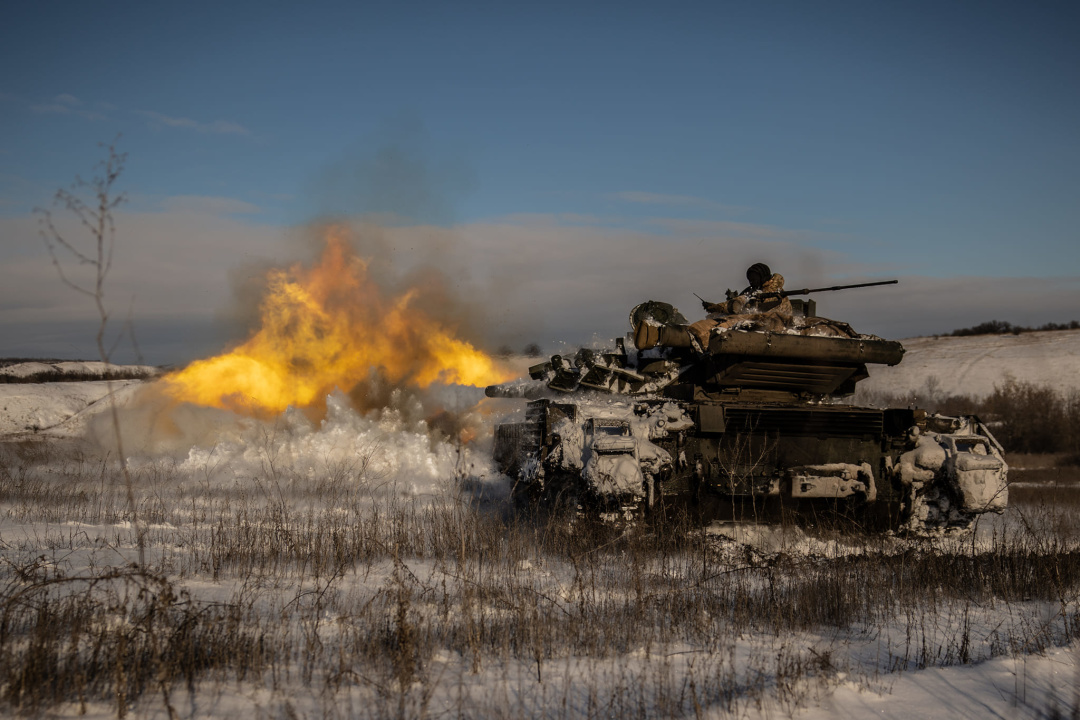
If we increase our pressure on our partners in all three of these areas, the diplomat sees no reason for the situation for Ukraine to become unmanageable or catastrophic.
"But once again, this will require us to work 24/7 in all these areas. And the main thing is who I mean by us. It should be understood that there is no separate diplomacy of the Ministry of Foreign Affairs, despite the fact that it is a specialized agency that is engaged in the relevant work. Diplomacy is the president, the prime minister, the chairman of the Verkhovna Rada, MPs, NGOs, the media community, and so on. The dream of every foreign minister, including mine, is that there should be synergy, that Ukraine should speak with one voice in the outside world. And for this voice to be firm, calm and convincing. Can this be achieved? Yes, it is possible. There are quite real examples in the world, for example, Israel with its government of national unity," emphasizes Volodymyr Ohryzko.
Finally, Oleksandr Yusupov sees the greatest risk in the loss of comprehensive assistance from Washington: "There will be elections in the US this year, and if Trump and the Republicans win, Kyiv can expect very bad news. If the government does not change, but, for example, a war breaks out between the United States and Iran or China, this will also have extremely negative consequences for Ukraine, because then Washington will have completely different priorities than helping Kyiv."
Accordingly, the main challenge for Ukraine is to increase its self-sufficiency by expanding the domestic military-industrial complex.
"As well as reducing dependence on the United States by increasing support from other European countries," the international expert summarized.
Myroslav Liskovych, Kyiv


